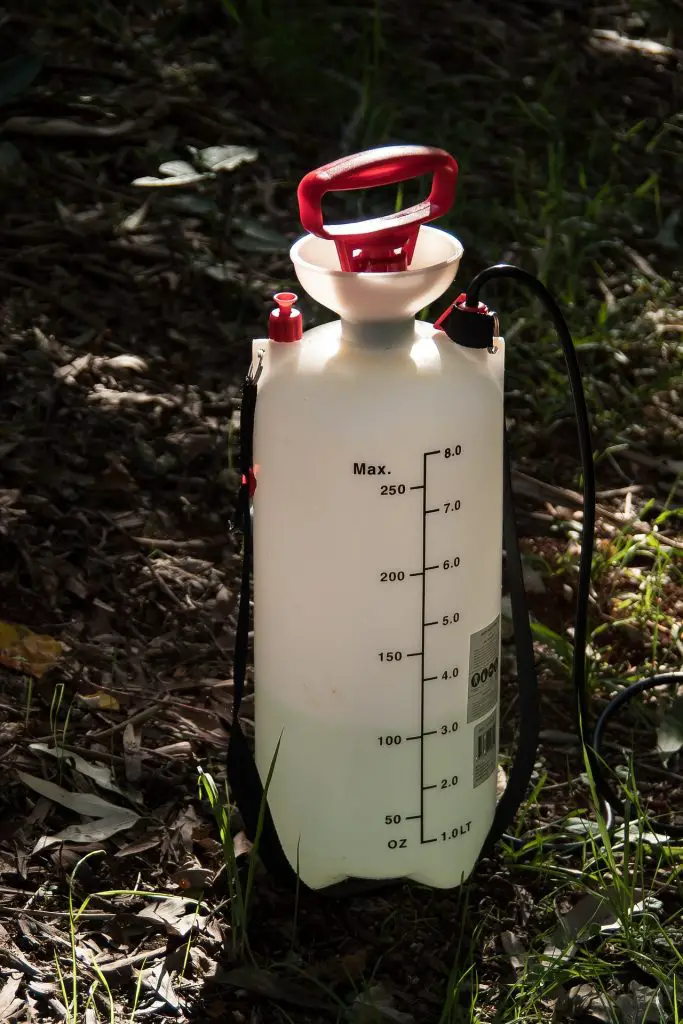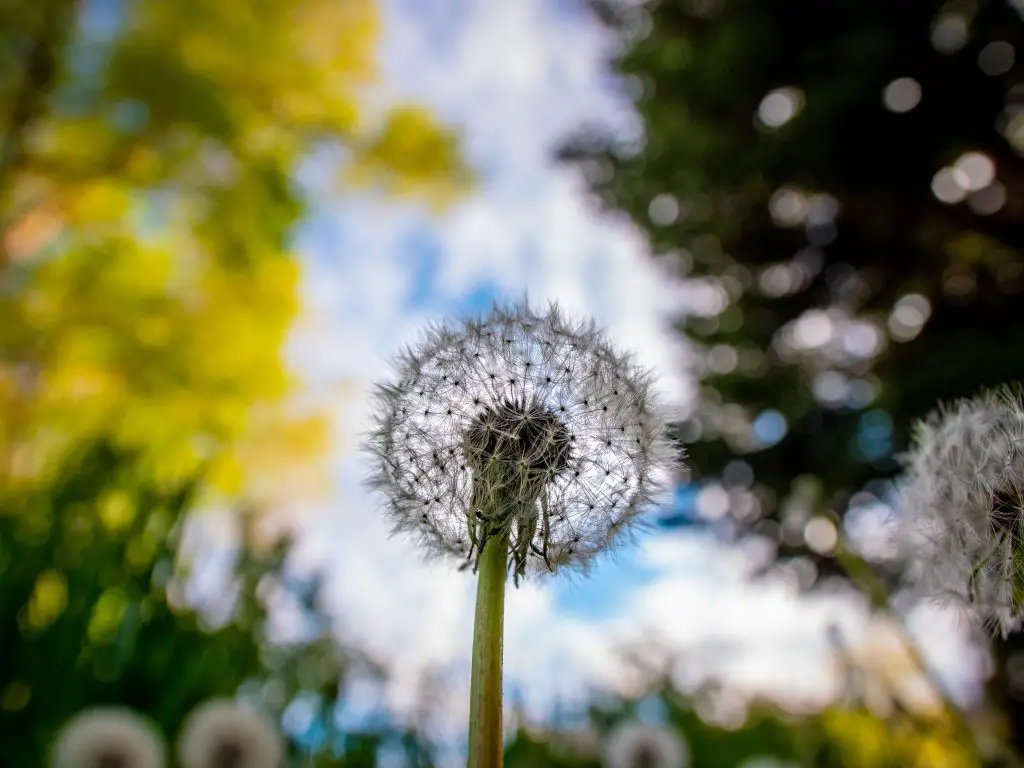Should I Cut Weeds Before Spraying Weed Killer? Weeds are an ongoing battle for all gardeners as they are constantly appearing all over your garden. One of the most common approaches to dealing with weed problems is to spray weed killer and one of the most common questions that is asked is whether should you cut the weeds before you apply the weed killer.
The approach to killing weeds with a weedkiller generally will be dependent upon where the weeds are in a garden. If you are killing weeds that appear in the garden beds or pathways it is generally advised to leave the weeds as is and then apply the weed killer. However, if weeds are appearing in your lawn it is often advisable to mow before you apply the weed killer.
The reason for this is that most of the weeds that appear in the lawn are broad leaf varieties such as capeweed which can produce flowers. Mowing the lawn first will remove the flowers immediately and then the broad leaves left on the ground can then be sprayed minimizing the spread of the weed.
However, in the case of weeds that are found in garden beds, it is not advisable to cut the weeds low to the ground as it will reduce the surface area of the leaf that is available to spray which will reduce the rate of absorption of the herbicide.

What Time Of Day Is Best For Spraying Weeds?
The other common question that is often asked is what is the best time to spray weeds during the day. This will vary from day to day depending upon the specific weather conditions, however, the general advice is to spray weeds in mid-morning.
This is because usually by this time any dew it is formed on the weeds has dried off and it provides the maximum length of time for the herbicide to sit on the leaves during the day until night-time when there is a risk of dew formation again which will dilute the herbicide.
Obviously, in cases where there is rain forecasted you may choose to apply the weed killer on a different day when the conditions are more favourable. But on these days if you do choose to apply the weed killer you should be applying the herbicide at least 2 hours before it rains to ensure that plant has adequate time to absorb the herbicide.
The other key consideration is ensuring that you apply the weed killer on a day when the conditions are relatively still. The reason for this is because it increases the risk of herbicide spray hitting plants that you want to keep.
Can Weed Killer Be Applied At Any Time During The Year?
Weed killer generally is effective throughout the year however there are certain types of weather conditions which will limit the effectiveness of the weed killer. As mentioned above frequent rain will detract from the quality of the weed killers’ performance.
However, also applying weed killer in the middle of a heatwave is also not very effective simply because the plants begin to shut down when the temperature exceeds 90F. This limits their ability to absorb the herbicide and therefore reduces its effectiveness over time.
In heatwave conditions, if you absolutely must apply weed killer it is recommended that you do it in the late evening to avoid the heat of the day which will help to improve the plants’ ability to absorb the herbicide.

Should The Weeds Be Removed After The Herbicide Has Been Applied
Some sources on the internet suggest removing the plants a couple of days after the herbicide has been applied. However, I generally recommend that you leave the weeds in place until I have completely died back.
The reason for this is that herbicides are most effective when they kill the entire plant including the root system. Removing the plants when they are partially dead runs the risk of leaving parts of the root system in the ground to continue to grow.
Do You Need To Wear Gloves When Spraying Herbicides?
The most common herbicides that are used in the marketplace are based on glysophate which is listed as been suspected carcinogen. There have also been several high-profile court cases involving professional gardeners or groundskeepers that have been exposed to high volumes of glysophate over a long period of time resulting in major health issues.
As such it is advisable to wear gloves and long sleeves when applying the weed killer to reduce the chances of any skin contact. The alternative option is to use an organic weed killer which can also be purchased at many garden centres. These products, for the most, part are generally based upon vinegar and salt solutions which will also kill weeds but are significantly less toxic.
Alternatively, you can also formulate your own herbicide at home using common household ingredients that you’ll find in most kitchens. An example of a common recipe that is used as weed killer is provided below
Ingredients
1 gallon of white vinegar
1 cup of table salt
1 teaspoon of dishwashing liquid
Once the ingredients are gathered they should be blended together to create a homogeneous solution that can then be transferred to a plastic spray bottle for application.
This type of formulation generally works well on most small and new weeds, however, plants that have large taproots such as dandelions usually will survive the application of a formulation like this. As such you need to apply the formulation multiple times to kill the plants.

Are Products Such As Weed And Feed Effective On Lawns?
Weed and feed products are commonly sold in garden centres in a spray form that can be connected to a hose for application and also a powdered form. My personal experience with using these types of products has been that they do work however they are not as effective as glysophate-based products such as round up.
I have also found with these products that the powdered version is generally more effective for the simple reason that the powder takes longer to break down and therefore stays in contact with the plants for longer periods of time.
If you are going to use a product like this it is important to apply it multiple times to your lawn every few weeks to ensure that the weeds are controlled adequately.
Can You Use Weed And Feed Products On Your Garden Beds?
Weed and feed products are not recommended for use on garden beds because they contain a selective herbicide which generally kills broadleaf species of grasses leaving fine grass blades unaffected. Applying a product of this nature to your garden bed will kill at least a portion of the plants within your garden bed so it is generally not recommended for this type of application
I hope you found this article useful and have great success getting on top of the weeds in your garden if you have any additional comments or questions please leave them in the section below.
Relevant Articles
How To Prevent Weeds From Growing
Is There Grass That Doesn’t Grow?
How Long Does It Take For Grass Seeds To Germinate?
Do Grass Seeds Need To Be Buried? Will They Germinate?
